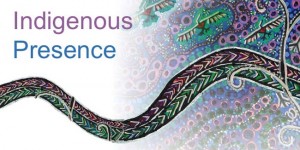‘Decolonizing’ universities has a price
 By Karl Hele
By Karl Hele
MONTREAL – If you want to decolonize post-secondary institutions, have an Indigenous presence, and see our worldviews presented there are two fairly simple answers.
First – hire more First Peoples. And second – provide core university funding for Indigenous programming that supports on-campus and visiting Elders, as well as well as faculty, staff, and students.
These ideas formed the basis for Dr. Harpell Montgomery’s (Mi’kmaq) keynote address and the following panel discussion at a McGill University conference on April 10, 2014.
Dr. Montgomery spoke about his participation in a collaborative project involving four researchers – three of them Indigenous – from the University of Regina where he is an Associate Professor of Social Work. The research team interviewed 16 participants, all tenured faculty, at the Universities of Regina, Saskatchewan, British Columbia, and Victoria.
Guided by Elders and Indigenous knowledges, the researchers assigned interview findings into five thematic areas – the Lodge, Snow, Path, Fire, and Smoke. Each had a metaphoric relationship in structuring knowledge.
The Lodge represented Indigenous knowledge. Snow represented academy and discipline, which casts a heavy blanket on top of Indigenous knowledge. The Path represented the journey Indigenous people and knowledge are taking as it winds its way through the snow to the lodge. The Fire represented the rekindling of Indigenous knowledges, cultures, and traditions, as well as being symbolic of melting the heavy snow. Smoke, through its movement and dispersal, represented the intentions, relationships, and movements of Indigenous peoples and knowledges.
While Dr. Montgomery acknowledged that there was no single answer to the complex questions of decolonization, relationship building, and how to move our knowledges forward into the academy, he did offer two good starting points. The first was to provide appropriate and stable funding to Indigenous programming. The second was hiring more Indigenous people at all levels and in all academic fields in post-secondary institutions.
When Dr. Montgomery ended his address, three panelists (Dr. Karl Hele from Concordia University, Dr. Michael Loft from McGill University, and Courtney Montour, the coordinator for Indigenous Access at McGill) spoke to their experiences in post-secondary institutions and took questions from the audience. All four discussed students turning to First Peoples Studies in an effort to learn more about themselves and other First Nations.
Prompted by a question from the floor, presenters debated the proposition that First Peoples Studies pedagogy is anti-white, reaching some consensus that it offers another perspective and might be characterized as anti-colonial.
Karl Hele, Garden River First Nation, is Director of the First Peoples’ Program at Concordia University in Montreal. The conference logo was designed by Leah Dorion, Metis, Saskatchewan.


